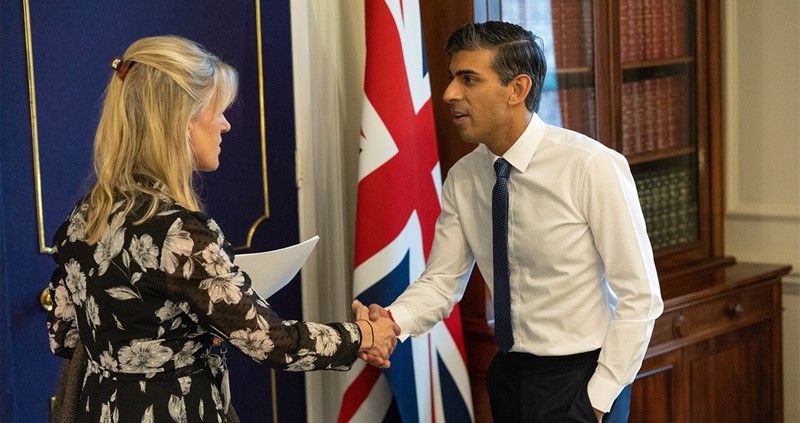The meeting came after the NFU highlighted concerns that many farm businesses were reducing production to limit losses from soaring inflation and energy bills, and the risk that posed to Britain’s home-grown food supply.
NFU President Minette Batters stressed the importance of the Prime Minister honouring the commitments he made during the leadership race, especially his commitment to establish a food security target, underpinned by a statutory duty to monitor domestic food production, and to hold a UK-wide annual food security summit at Number 10.
The meeting also covered the opportunities for British food and farming, particularly in the fruit and vegetable sector, if supply chain issues can be resolved and production costs stabilised.
Commenting after the meeting, Mrs Batters said: "As the former Director General of MI5 said recently, home-grown food production is vital to our nation’s security and success, and that is what I reiterated to the Prime Minister at our meeting today. He was very receptive and it’s clear that he is taking food and energy security seriously.
"British farmers and growers have so much to offer to the nation, providing high quality, affordable, climate friendly food alongside increasingly important renewable energy and a thriving countryside for us all to enjoy. But the past year has been a stark reminder of what we stand to lose if British food and farming is taken for granted, and why it needs to be a political priority.
"Ongoing supply chain issues and soaring production costs have caused a shortage of eggs, while energy prices are threatening next year’s crop of tomatoes, cucumbers and aubergines. And that could just be the start. If we continue as we are, the government’s own ambition to grow more of our own food, especially fruit and vegetables, will fail, and food price inflation will continue to soar at a time when families need access to quality, affordable food more than ever.
"The Prime Minister made it clear today that he wants to provide an environment for British food and farming to thrive, and what farmers and growers need more than anything is certainty. This means providing continued support to farm businesses through the inflation and energy crisis, enabling fair contractual relationships in the supply chain, establishing a national food security target, and providing clarity and delivering effective policies such as the new Environmental Land Management schemes. These would help give farmers the confidence they need to continue producing fantastic British food for families up and down the country.
"I hope this meeting and the Prime Minister’s commitment to ensuring Britain has a thriving food and sector will mark a turning point in how our government values and prioritises the production of home-grown food, and demonstrates this government does back British farming."
